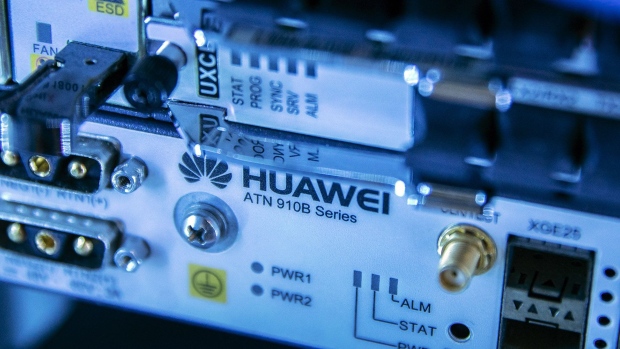Jul 13, 2020
U.K. Carriers’ High-Cost Estimates on Huawei Ban Raise Doubts
, Bloomberg News

(Bloomberg) -- Phone companies’ stark estimates for how much it would cost to replace Huawei Technologies Co. are being met with skepticism by analysts ahead of the U.K.’s decision on whether to slash its reliance on the Chinese company from the country’s telecommunications networks.
Two of Huawei’s biggest British customers set out their estimates in a hearing with lawmakers last week. Andrea Dona, Vodafone Group Plc’s U.K. head of networks, said it would cost “single-figure billions” of pounds to swap out the Shenzhen-based supplier. BT Group Plc’s Chief Technology and Information Officer Howard Watson said it would cost as much as 600 million pounds ($756 million), if the company was given at least five years to make the change.
Read more: BT, Vodafone Need 5 Years to Drop Huawei Without ‘Blackouts’
“To get higher figures, which Vodafone and BT want to use to scare politicians, then you have to start looking at scenarios where the rip-and-replace is done in less than a year,” said James Ratzer, an analyst at New Street Research. “But in reality, this is highly unlikely due to the practical difficulties involved and risks of network quality degradation.”
Phone carriers want to avoid an outright ban of Huawei, which makes up about two-thirds of BT’s 4G mobile internet antennas, and about a third of Vodafone’s. All the U.K.’s four carriers except Telefonica SA’s O2 were set to use Huawei as a key supplier for their next generation 5G services, which they started to roll out last year. The U.K.’s National Security Council will meet on Tuesday to decide the Chinese company’s future.
Representatives for Vodafone and BT didn’t have an immediate comment on analysts’ remarks about their estimates.
U.K. Prime Minister Boris Johnson in January blocked Huawei from sensitive “core” components and capped its use to 35% of fiber and 5G components. That stopped short of the full ban that U.S. President Donald Trump was lobbying for and triggered a rebellion among some lawmakers in Johnson’s own party, who said Huawei can’t be trusted due to its proximity to the Chinese Communist Party - an accusation Huawei denies.
The U.K. is now being forced to reckon with political headwinds as well as the impact of more stringent U.S. sanctions, which jeopardize Huawei’s supply chain.
Read more: U.S. War on Huawei Begins to Turn After Europe’s Rough Year
The costs of stricter rules will vary hugely depending on how immediate and comprehensive they are. BT Chief Executive Officer Philip Jansen said in an interview on BBC Radio on Monday that a blanket ban cutting Huawei out of legacy systems would be impossible in less than a decade, and could potentially compromise network security by removing BT’s access to Huawei software updates.
Still, operators switch out a lot of equipment every 10 to 15 years, anyway. Fourth-generation antennas -- the bedrock for early 5G systems -- were rolled out en masse in the U.K. from 2012. Moving a swap-out closer to that equipment’s natural expiry date would dramatically lower phone carriers’ costs.
“Everything gets replaced in the long-term,” said James Barford from consulting firm Enders Analysis. He estimated “direct tear-out costs” for carriers to remove Huawei across the U.K. at 1.5 billion pounds to 2 billion pounds.
New Street’s Ratzer said that if the swap-out can be done in five to seven years, the cost for the operators will be close to zero because that timing would fit into the carriers’ natural equipment replacement cycles.
Ericsson AB and Nokia Oyj, Huawei’s two main rivals in telecommunications equipment, said fears of a ban derailing Britain’s 5G roll-out were overblown. Ericsson has said it’s ready to step in if Huawei is banned and the company said in an interview with the Sunday Telegraph newspaper that Enders’s estimates were “impossible to justify.”
“The transition to 5G is a complex and ambitious project, but the removal of Huawei doesn’t have to slow it down,” said Cormac Whelan, Nokia’s CEO for the U.K. and Ireland. “We have the capacity to replace all of the Huawei equipment in the U.K.’s 5G network.”
©2020 Bloomberg L.P.





